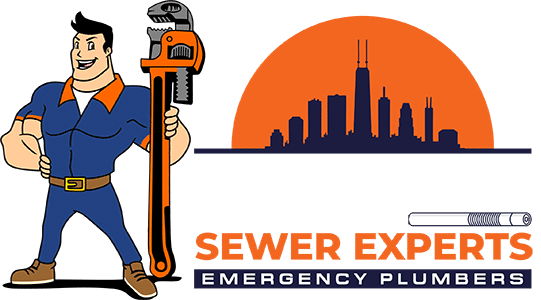For restaurant and commercial kitchen owners in the greater Chicago area, proper grease trap maintenance is a critical component of a fully functioning and compliant kitchen. Grease traps play an essential role in preventing fats, oils, and grease (FOG) from entering the city’s sewer system, reducing the risk of blockages and damage to the infrastructure. Failing to adequately maintain your establishment’s grease trap can result in back-ups, unsanitary conditions, and potential fines or penalties for non-compliance. In this article, we aim to explore the significance of grease trap maintenance and offer practical tips for keeping your establishment’s grease trap in optimal working condition. By partnering with the experienced professionals at Chicago Sewer Experts, you can ensure that your grease trap operates efficiently and adheres to local regulations.
Regular grease trap maintenance not only supports the health and functionality of your restaurant or commercial kitchen but also contributes to a cleaner and more sustainable environment. Keeping FOG out of the sewer system prevents blockages and overflows, protecting local waterways from contamination. Establishing a routine grease trap maintenance plan, and working with knowledgeable plumbing service providers like Chicago Sewer Experts, can enable your restaurant or commercial kitchen to excel in both operational efficiency and environmental stewardship.
Understanding Grease Traps and Their Function
Before diving into grease trap maintenance tips, let’s first understand the purpose of a grease trap and how it functions within your commercial kitchen’s plumbing system. A grease trap is a plumbing device designed to intercept fats, oils, and grease (FOG) from wastewater produced by restaurants and commercial kitchens. By capturing FOG before it enters the sewer system, grease traps reduce the risk of sewer pipe blockages, overflows, and damage to wastewater treatment facilities.
Grease traps function by slowing down the flow of hot, greasy water and allowing it to cool. As the water cools, FOG separates from the water and floats to the top of the trap, while heavier food solids settle to the bottom. The remaining water, now devoid of FOG and solids, flows into the sewer system for treatment. Over time, captured FOG and solids accumulate in the grease trap and must be removed to maintain the trap’s efficiency.
Grease Trap Maintenance Tips
Now that we’ve covered the basics of grease traps and their function, let’s explore some grease trap maintenance tips to keep your commercial kitchen running smoothly:
1. Regular Cleaning and Pumping: Ensuring your grease trap is cleaned and pumped regularly is essential for maintaining its efficiency and prolonging its lifespan. The frequency of cleaning depends on your establishment’s size and the volume of FOG produced. However, it’s generally recommended to schedule grease trap cleaning and pumping when it’s 25% full of FOG and solids.
2. Proper Disposal of Fats, Oils, and Grease: Educating your kitchen staff on the importance of properly disposing of FOG (e.g., scraping plates and cookware before washing and using dedicated containers to collect used cooking oils) can help reduce the amount of FOG entering your grease trap, and subsequently lessen the maintenance frequency.
3. Routine Inspections: Conduct regular visual inspections of your grease trap to monitor its condition and ensure there are no leaks or damage. Pay close attention to signs of rust or corrosion, as these can result in premature failure or reduced effectiveness of the trap.
4. Keep Detailed Records: Maintain a logbook of all grease trap maintenance, cleaning, and pumping activities. This will help you track the frequency of service and compliance with local regulations, and can be a valuable resource during an inspection or audit.
Guidelines for Grease Trap Compliance
In Chicago, local regulations require that all food service establishments (FSEs) with grease traps adhere to certain guidelines to ensure the proper maintenance and functioning of the devices:
1. Obtain the Appropriate Permits: Restaurants and commercial kitchens must obtain the necessary permits from the City of Chicago for grease trap installation, operation, and maintenance.
2. Use a Licensed Waste Hauler: Any grease trap waste removed from your establishment must be disposed of by a licensed waste hauler, in accordance with local regulations.
3. Adhere to Cleaning and Maintenance Frequencies: To remain compliant, FSEs must adhere to the city’s guidelines regarding the frequency of grease trap cleaning, pumping, and maintenance.
4. Maintain Accurate Record-Keeping: As mentioned earlier, keeping detailed records of your grease trap maintenance activities is essential to ensure compliance with local regulations and facilitate a smooth inspection process.
Partnering with Chicago Sewer Experts for Grease Trap Maintenance
To keep your restaurant or commercial kitchen’s grease trap in optimal working condition, it is essential to work with a reliable plumbing service provider. Chicago Sewer Experts offers the following benefits to help maintain your grease trap and ensure compliance with local regulations:
1. Expert Knowledge: Our team of trained professionals possesses extensive knowledge of grease trap maintenance requirements, enabling them to recommend the best course of action to keep your establishment compliant.
2. Comprehensive Services: From routine cleaning and pumping to emergency grease trap repairs and replacements, Chicago Sewer Experts provide a full range of services to cater to your establishment’s needs.
3. Quality Equipment: Utilizing top-of-the-line equipment and tools, our skilled technicians are equipped to handle all aspects of grease trap maintenance effectively and efficiently.
4. Customer-Centric Approach: We pride ourselves on our commitment to delivering exceptional customer service, ensuring we address your questions, concerns, and tailor our services to meet your specific needs.
Conclusion
In conclusion, proper grease trap maintenance is crucial for the success, efficiency, and compliance of your Chicago restaurant or commercial kitchen. By following the tips and guidelines outlined in this article and partnering with experienced professionals like Chicago Sewer Experts, you can safeguard your establishment against plumbing issues and penalties related to grease trap maintenance while supporting a clean and sustainable environment.
Get the expert help you need for maintaining your grease trap with Chicago Sewer Experts. Contact us or visit our website today to discuss your grease trap maintenance needs and schedule a service appointment.

Recent Comments